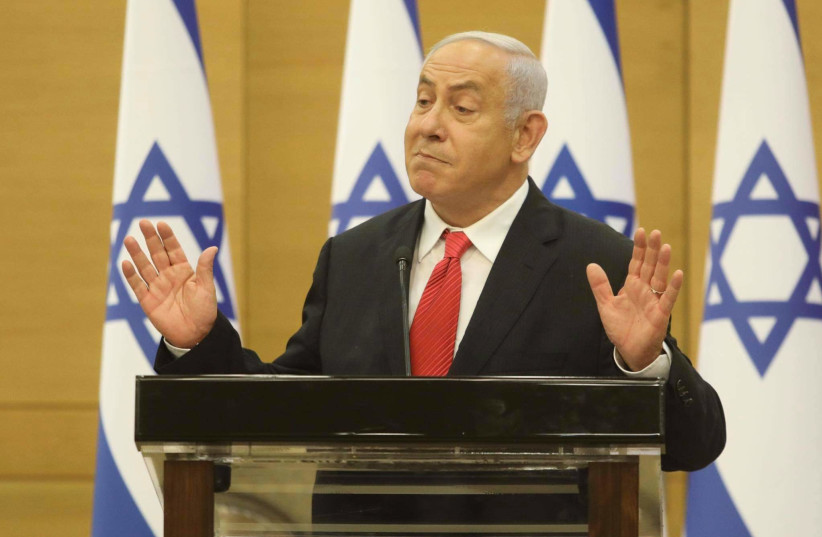It might be just politics. But news that Democrats are holding up $1 billion for the Iron Dome missile defense system led many Israelis to worry that the bond between the two allies is breaking.
And that bond, especially in terms of military aid for Israel and the Iron Dome missile defense system, is a lifesaver.
Israeli politicians like Foreign Minister Yair Lapid downplayed the move, and after Lapid spoke with US House Majority Leader Steny Hoyer, he released a statement saying the defunding was a “technical delay” and that the money would be approved at a later date.
Former defense minister and chief of staff Moshe (“Bogie”) Ya’alon also said the move won’t affect Israel’s military superiority, but it brings to light the deep divisions between the Democratic Party and Israel.

Those major divisions, Ya’alon said, were because of the behavior of former prime minister Benjamin Netanyahu, actions that “severely harmed” Israel’s bipartisan status in Congress, and among American Jews who tend to vote for the Democratic Party. The new government led by Prime Minister Naftali Bennett has identified the loss of Jewish support as a major area of concern, and he is working to get that support back.
“It’s more a political issue because it brings out the issue that the Democrats are becoming more vocal on the issue of Israel,” Ya’alon said. “Netanyahu publicly supported the Republicans during the last election, and we are paying a price for it.”
Politics aside, Ya’alon also warned that the situation would make Israel’s many enemies happy.
“Israel’s enemies, led by Iran and Hezbollah, would be happy about any dispute between Israel and the United States, especially in the area of security assistance,” he told The Jerusalem Post.
The Iron Dome was developed with the financial help of the United States. After a lengthy development process, it went into service in April 2011.
Just days later, it made its first interception of a Grad rocket fired from the Gaza Strip toward southern Israel. There have been many upgrades to the system allowing it to intercept drones and other projectiles fired from even farther away.
The primary contractor for the development of the Iron Dome is RAFAEL, with its multi-mission radar developed by ELTA, a subsidiary of the Israel Aerospace Industries (IAI). The missile’s command and control system is developed by mPrest.
THE SYSTEM uses 24 pounds of explosives to intercept an incoming projectile. It is able to calculate when rockets will land in civilian centers, or in open areas, and then choose whether to intercept them.
Along with the Iron Dome, Israel has a comprehensive protective umbrella able to counter the growing missile threats from its enemies. It continuously improves the technology behind the country’s anti-missile systems: the Arrow (Arrow-2 and Arrow-3) system, David’s Sling and American Patriot batteries.
However, even with all the missile defense systems, nothing is fully hermetic. Officials have warned that large missile barrages with several precision missiles embedded within are a real concern.
That is especially true if there is a multi-front war with Hezbollah, Hamas, and even Iranian-backed militias in Iraq firing toward Israel.
The Iron Dome has been used during several military operations against terrorist groups in Gaza, as well as intercepting rockets fired toward Israel from Syria and Lebanon. Since its first deployment, the Iron Dome has intercepted more than 85% of projectiles fired toward Israeli civilian centers, changing the face of battle between Israel and her enemies.
In May, Hamas fired close to 4,500 rockets and mortars at Israel during an 11-day war dubbed Guardian of the Walls. Hamas started the fighting by firing a salvo of missiles toward Jerusalem.
Those rockets and hundreds of others were intercepted by the Iron Dome system over the course of the fighting. But because of so many interceptions, Israel had to request $1 billion to replenish the batteries. President Joe Biden agreed to the request.
Liberal Democrats such as Reps. Ilhan Omar of Minnesota, Alexandria Ocasio-Cortez of New York, Rashida Tlaib of Michigan and Ayanna Pressley of Massachusetts objected to the policy, citing the 200 Palestinians killed during the May war.
Maybe they don’t see the full picture.
The Iron Dome allowed the IDF to intercept thousands of rockets that otherwise would have slammed into residential areas, perhaps killing far more than the 11 civilians and one soldier who died in rocket strikes in Israel. Those, in turn, would have led the Israeli military to strike the Gaza Strip even harder and kill more Palestinians.
It might be just politics for Washington. But in Israel and even in the Gaza Strip, the Iron Dome is a lifesaver.
